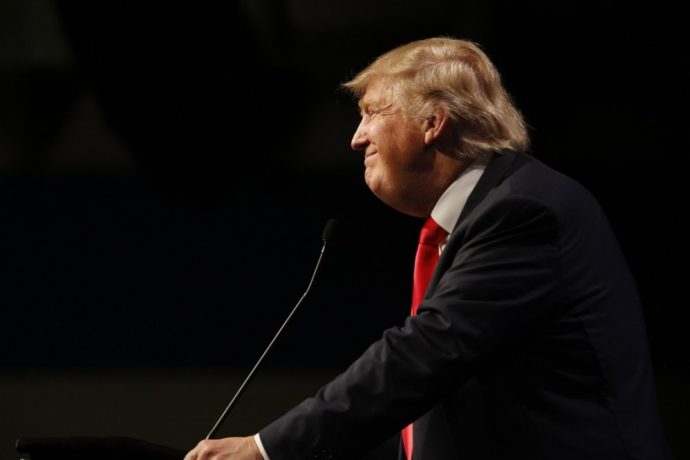Fred Siegel cites a lot of key information in this post — here is the subtitle: “The Republican frontrunner arises from the collapse of government legitimacy.” Here is Siegel’s opening and close:
Why has Donald Trump’s cult-of-personality candidacy—which so many professionals and pundits at first dismissed as a branding exercise—become a fever of sorts? Why has he been able to exploit the failings and foibles of both Barack Obama and of the Republican Party leadership? Why, asks Obama, has Trump received $2 billion in free coverage from the president’s acolytes in the media?
These questions have answers. Consider first the sharp decline in economic growth in the era of globalization. From the post-World War II years to 2000, United States GDP grew at a hearty 3.6 percent per year, on average. Since then, it has averaged 2 percent per year. Worse yet, since 2000, wages have declined while corporate profits remain robust. Wages for men have been flat since 1975.
Not surprisingly, popular discontent with government has grown. According to a recent McClatchy poll, 71 percent of Americans think that the country is on the wrong track. In four of the last five national elections—from 2006 through 2014—the president’s party in Congress has been clobbered. Only in 2012 was the pattern broken, and in that year, Obama won reelection with fewer votes than he got four years earlier—the first president to pull off that dubious feat. “We have not seen such sustained dissatisfaction,” explains electoral analyst Jay Cost, “since public opinion polling began. In fact, we’d have to travel back to the 1890s to discover so prolonged a bout of electoral distemper.” A quarter-century after the Soviet Union crumbled under the crush of U.S. power and an increasingly high-tech and international economy, politically correct America is suffering from global competition that has helped produce serious fractures. America’s bicoastal elites thrive, while the middle class labors under stagnating or declining incomes.
…
Emerging in the midst of a sluggish economy, the Trump phenomenon has been based on bravado, on the candidate’s willingness to identify the elephant in the room—whether illegal immigration, the underside of global trade, declining wages, Islamic terrorism, or political correctness. Events—and Obama—have repeatedly placed pachyderms in the public square, but most politicians either avert their eyes or describe the elephants as diminutive mammals. It may be true, given the candidate’s stumbles of late, that Trump is finally imploding. But his success up to now, as one supporter puts it, has come from barking when most pols are whispering.
Read more: City Journal

